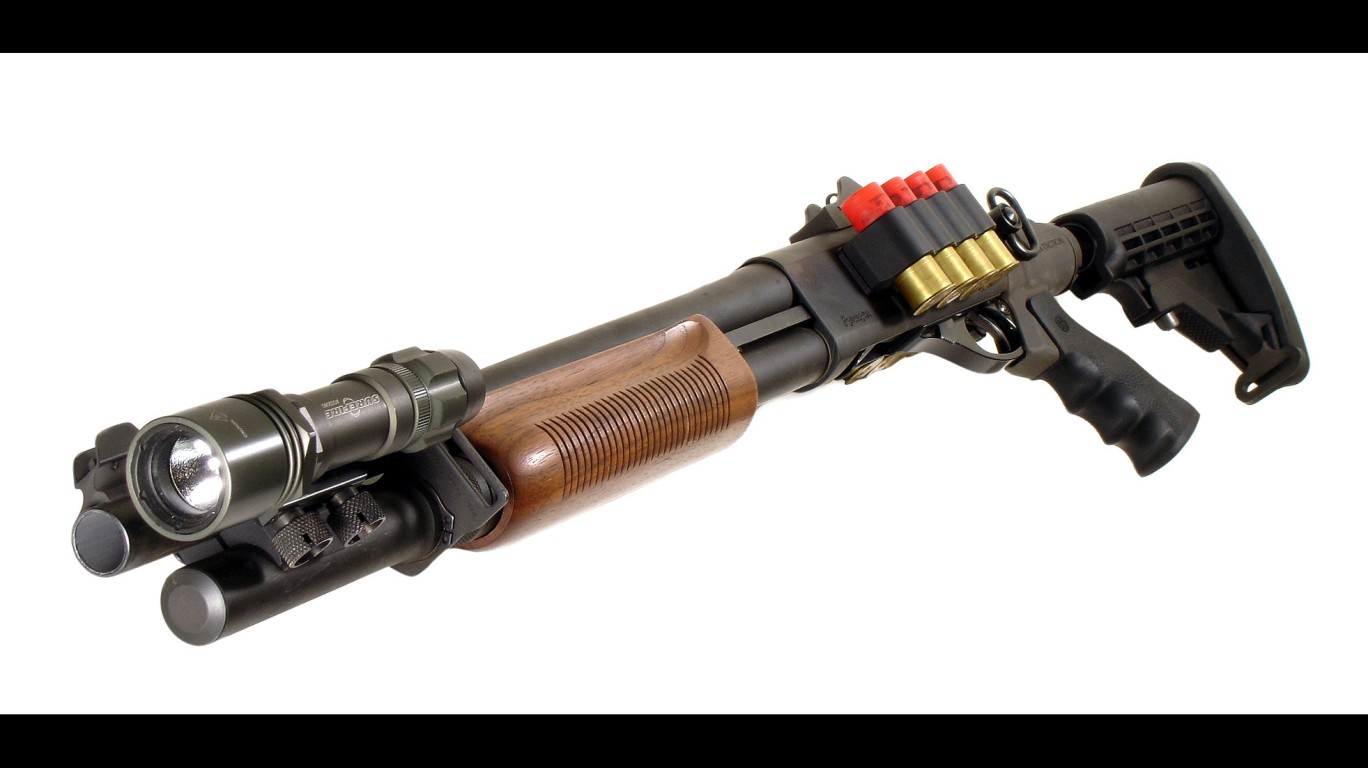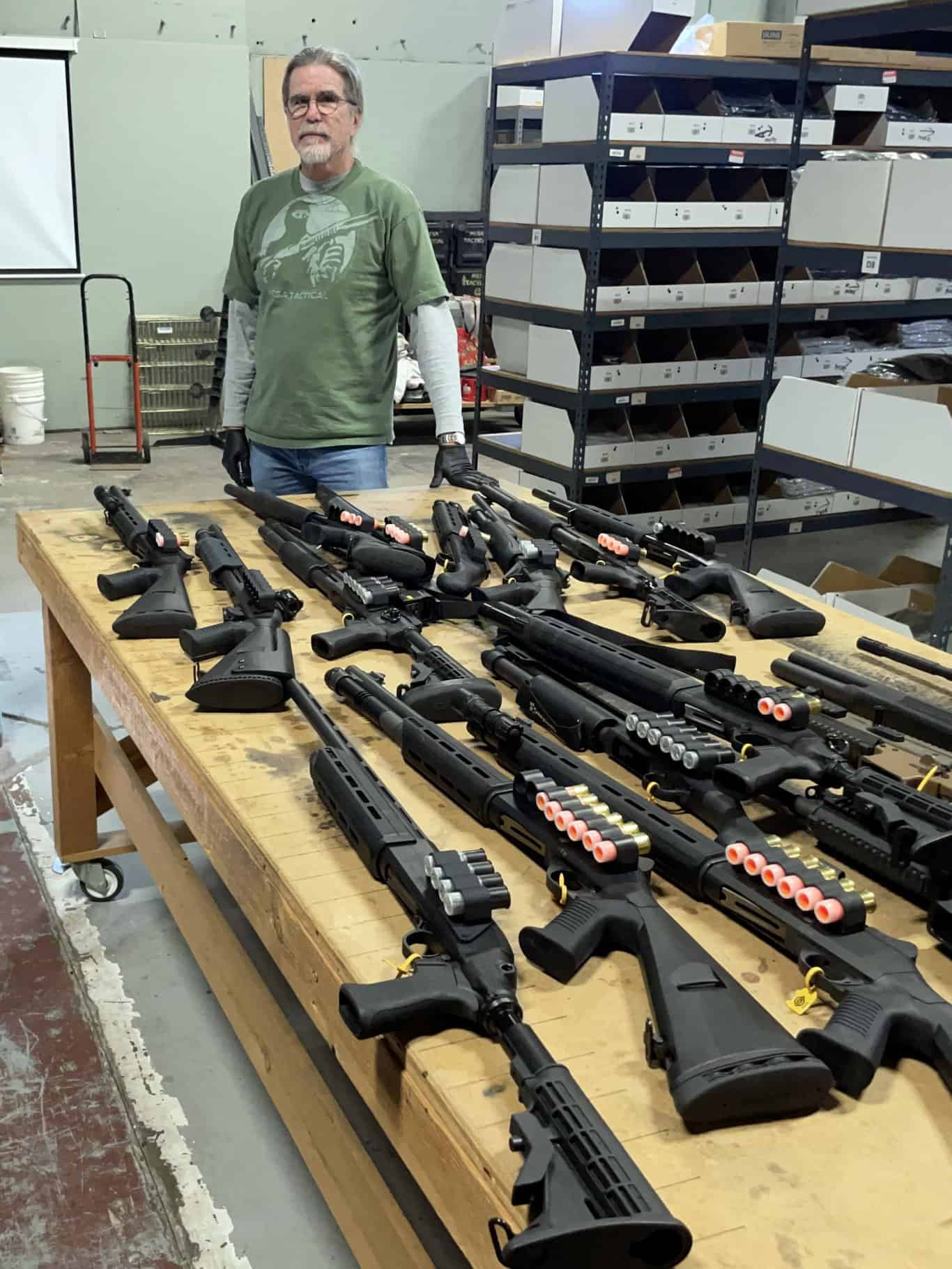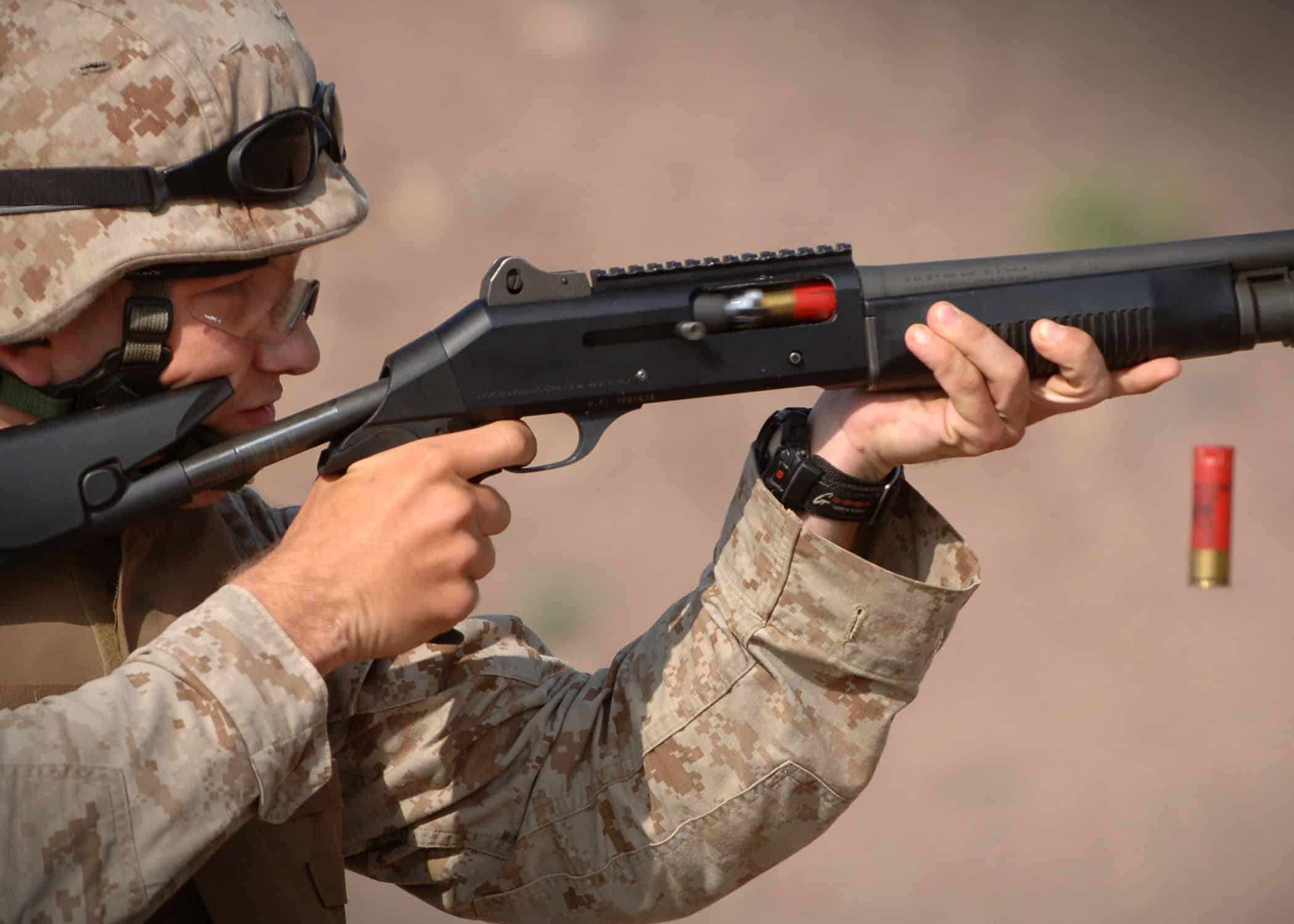
24/7 Wall St. Insights:
- The Ithaca Model 37 came into service prior to World War II
- The design of the Ithaca Model 37 was based on John Browning’s design of the Model 17
- It notably saw service throughout the Pacific Theater in World War II as well as in the Korean and Vietnam Wars
- Also: Discover the next Nvidia
The Ithaca Model 37 was developed in the late 1930s by the Ithaca Gun Company. It has a storied history throughout World War II in the Pacific Theater and even much further past that into the Vietnam War and beyond. (These are the top selling guns of all time, ranked.)
The design for the Ithaca Model 37 can trace its roots to the Model 17 developed by famed gunsmith John Browning. However, the Ithaca Model 37 further refined the design making it more versatile for a number of different combat environments. One unique feature for this gun is its bottom ejection port which reduces the chances of dirt and debris clogging the firing mechanism, making it ideal for harsher conditions.
In World War II, this shotgun saw service in the Pacific Theater where it proved effective in jungle or even trench warfare. The reliability and lack of maintenance needed for upkeep made it ideal for close quarters combat in that type of terrain. Not to mention, its relatively compact size and stopping power were added bonuses.
The Model 37 would continue to see service even after World War II in both the Korean War and Vietnam War. Again, this shotgun was invaluable for close quarters combat and ideal for clearing tunnels and bunkers. (These are the 16 sniper rifles that the U.S. military uses today.)
In terms of versatility, this shotgun is capable of housing anything from 12-gauge shells to 28-gauge shells, and it can be outfitted with up to an 8-round tubular magazine.
There are a number of other American shotguns that have seen service since, and 24/7 Wall St. is taking a closer look at these. To identify every major American-made military shotgun since WWI, 24/7 Wall St. reviewed a catalog of shotguns from Military Factory, an online database of arms, vehicles, and aircraft used by militaries worldwide. We ordered the shotguns chronologically and included supplemental information regarding the type of gun and the year it entered service, as well as the manufacturer, caliber, and feed.
Here is a closer look at the oldest and newest American-made military shotguns since World War I:
Why Are We Covering This:

Understanding the use of small arms in the U.S. military is important for a few reasons. These small arms are the primary means of defense for soldiers on the ground. These guns influence tactical decisions on the battlefield and can influence overall strategy in some circumstances. Also, knowledge around small arms influences training programs. The technology and features of these small arms holds a powerful influence on the next generation of small arms based on what works and what doesn’t.
Stevens M620 (Model 620)
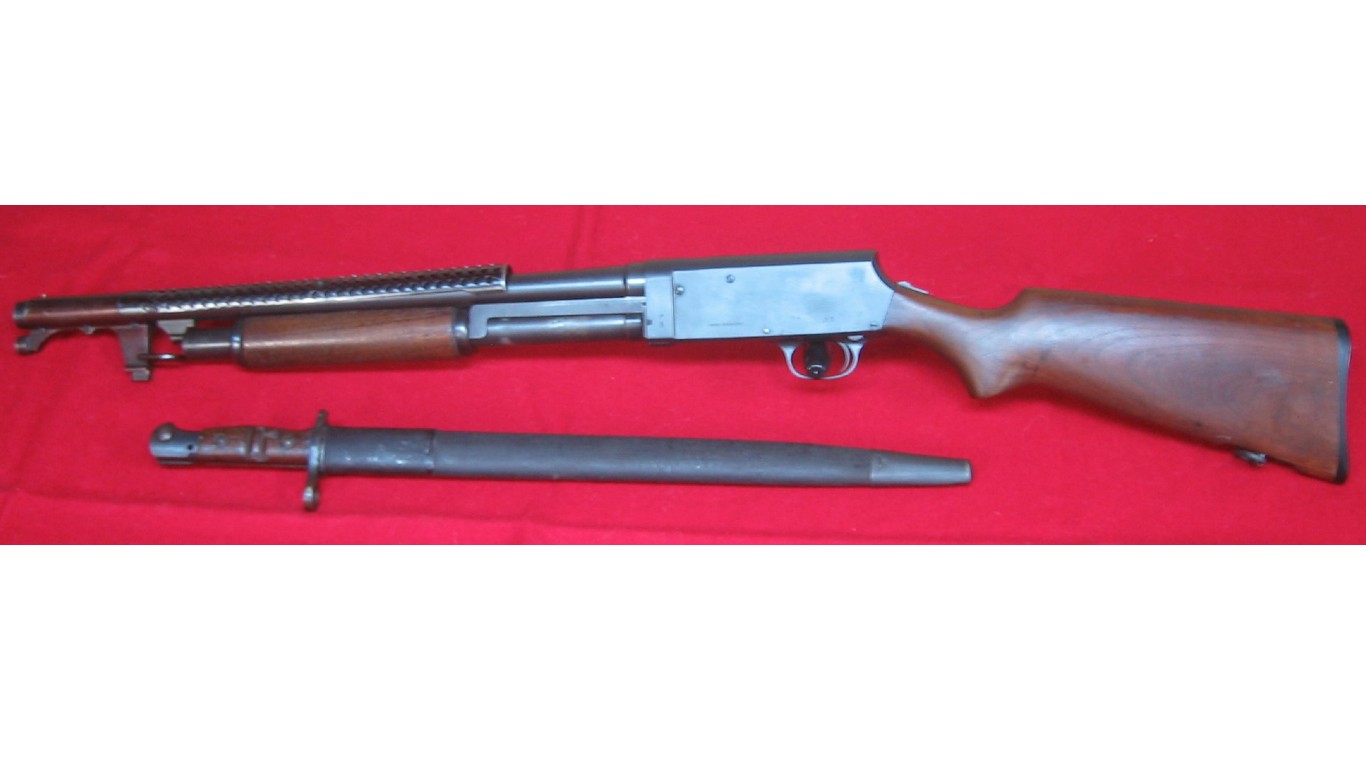
- Type: Pump-action slide shotgun
- Year entered service: 1927
- Manufacturer: J. Stevens Arms Company
- Caliber and feed: 12-, 16-, or 20-gauge; 5-round tubular magazine
Savage Arms M720

- Type: Semi-automatic shotgun
- Year entered service: 1935
- Manufacturer: Savage Arms
- Caliber and feed: 12-gauge; 5-round tubular magazine
Ithaca Model 37
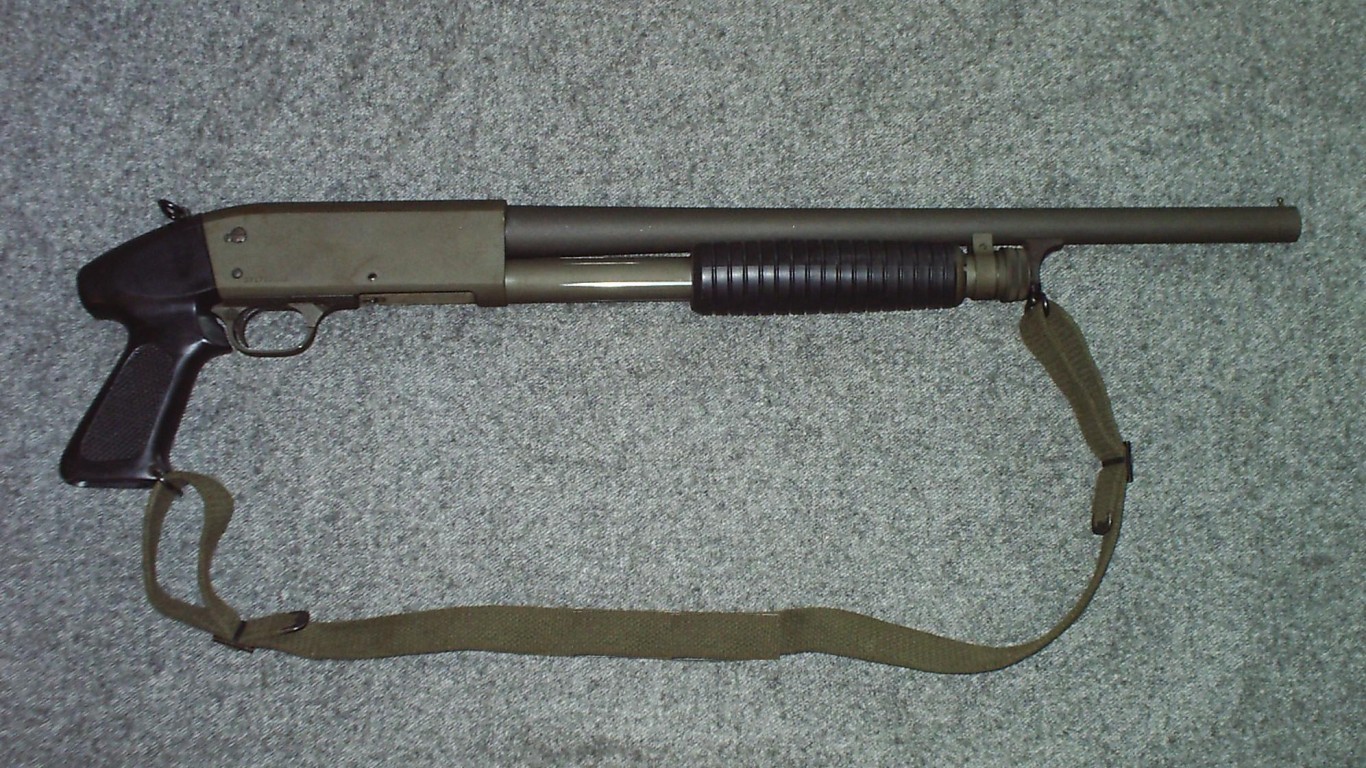
- Type: Combat shotgun
- Year entered service: 1937
- Manufacturer: Ithaca Gun Company
- Caliber and feed: 12-, 16-, 20-, or 28-gauge; 4-, 5-, or 8-round tubular magazine
Remington Model 870
- Type: Pump-action shotgun
- Year entered service: 1950
- Manufacturer: Remington Arms
- Caliber and feed: 12-, 16-, 20- or 28-gauge; .410 bore; 4- or 7-round tubular magazine
Remington Model 870 Wingmaster
- Type: Pump-action slide shotgun
- Year entered service: 1951
- Manufacturer: Remington Arms
- Caliber and feed: 12-, 16-, 20- or 28-gauge; .410 bore; 5-round tubular magazine
Remington Model 1100

- Type: Semi-automatic auto-loading shotgun
- Year entered service: 1963
- Manufacturer: Remington Arms
- Caliber and feed: 12-, 16-, or 20-gauge; 4- or 10-round internal tubular magazine
Winchester Model 1200
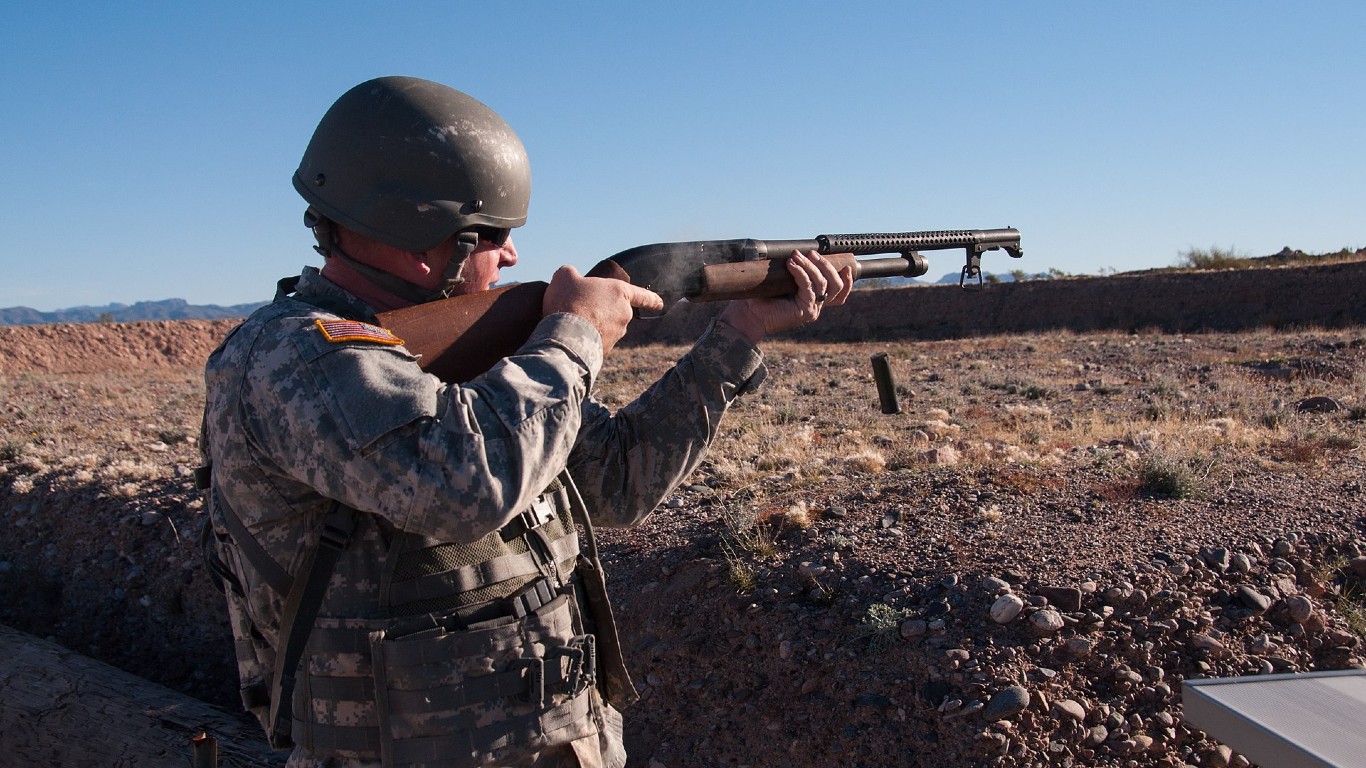
- Type: Pump-action slide shotgun
- Year entered service: 1968
- Manufacturer: Winchester Repeating Arms
- Caliber and feed: 12-, 16-, or 20-gauge; 4-, 5-, 6-, or 7-shot capacity
Mossberg Model 590
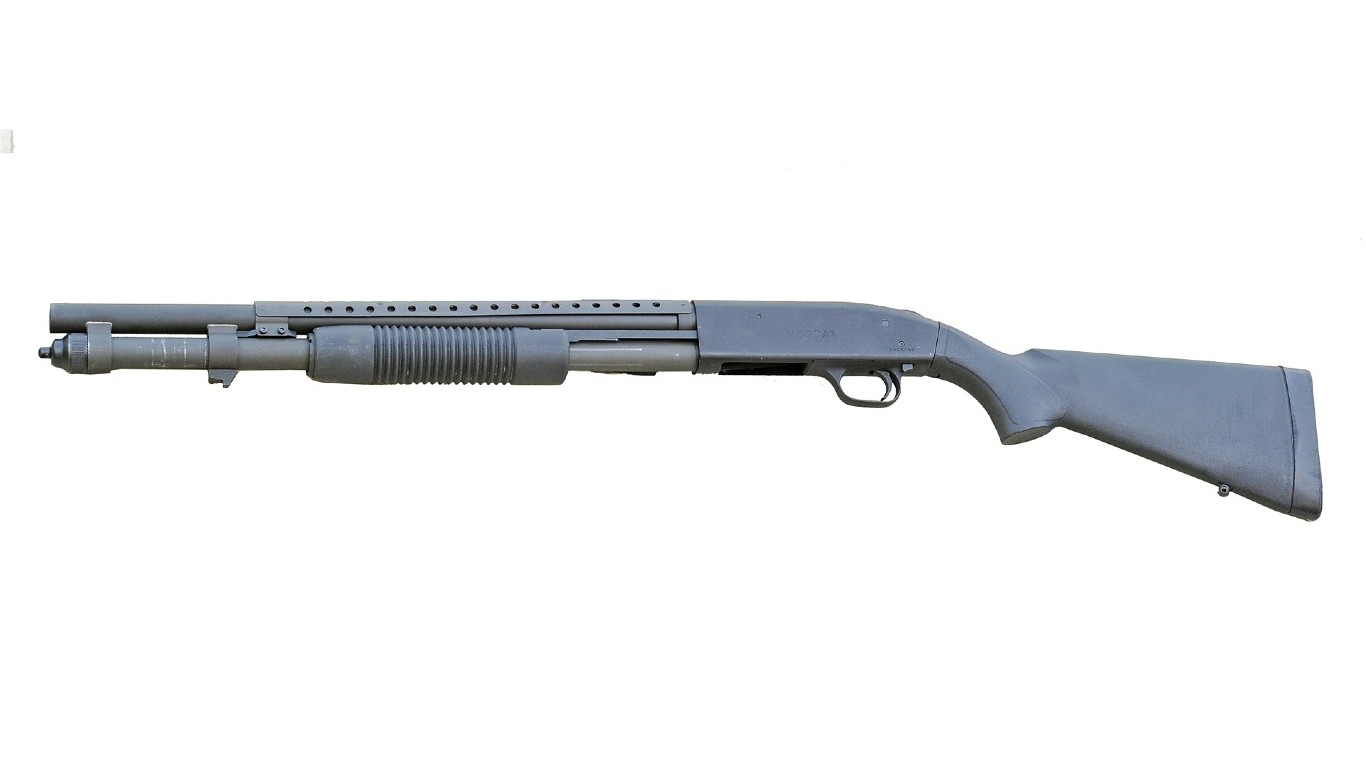
- Type: Pump-action shotgun
- Year entered service: 1975
- Manufacturer: Mossberg
- Caliber and feed: 12-gauge; 6-, 8-, or 9-round tubular magazine
Winchester Model 1300

- Type: Combat slide-action shotgun
- Year entered service: 1978
- Manufacturer: Winchester Repeating Arms
- Caliber and feed: 12- or 20-gauge; 4-, 5-, 7- or 8-shot tubular magazine
Heckler & Koch HK CAWS
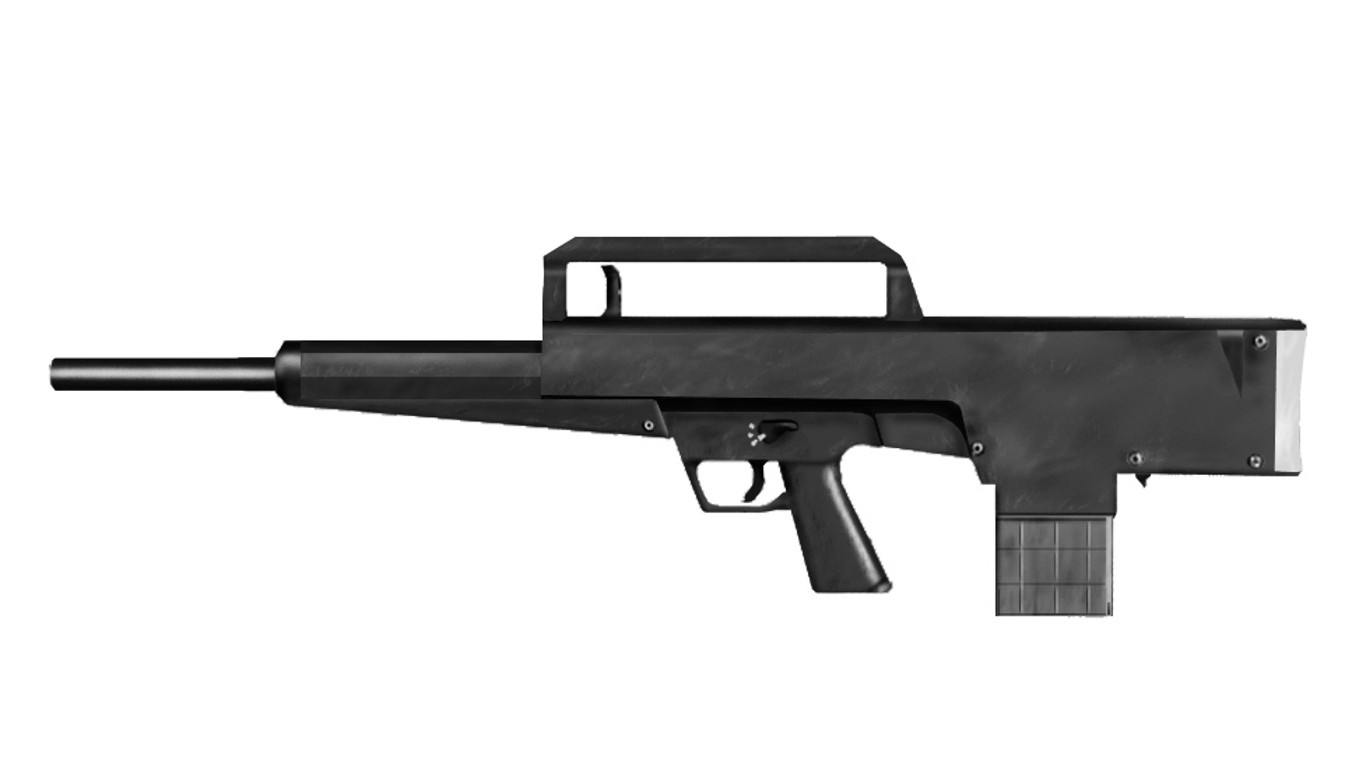
- Type: Select-fire automatic combat shotgun
- Year entered service: 1983
- Manufacturer: Heckler & Koch
- Caliber and feed: 12-gauge; 10-round detachable box magazine
Pancor Jackhammer
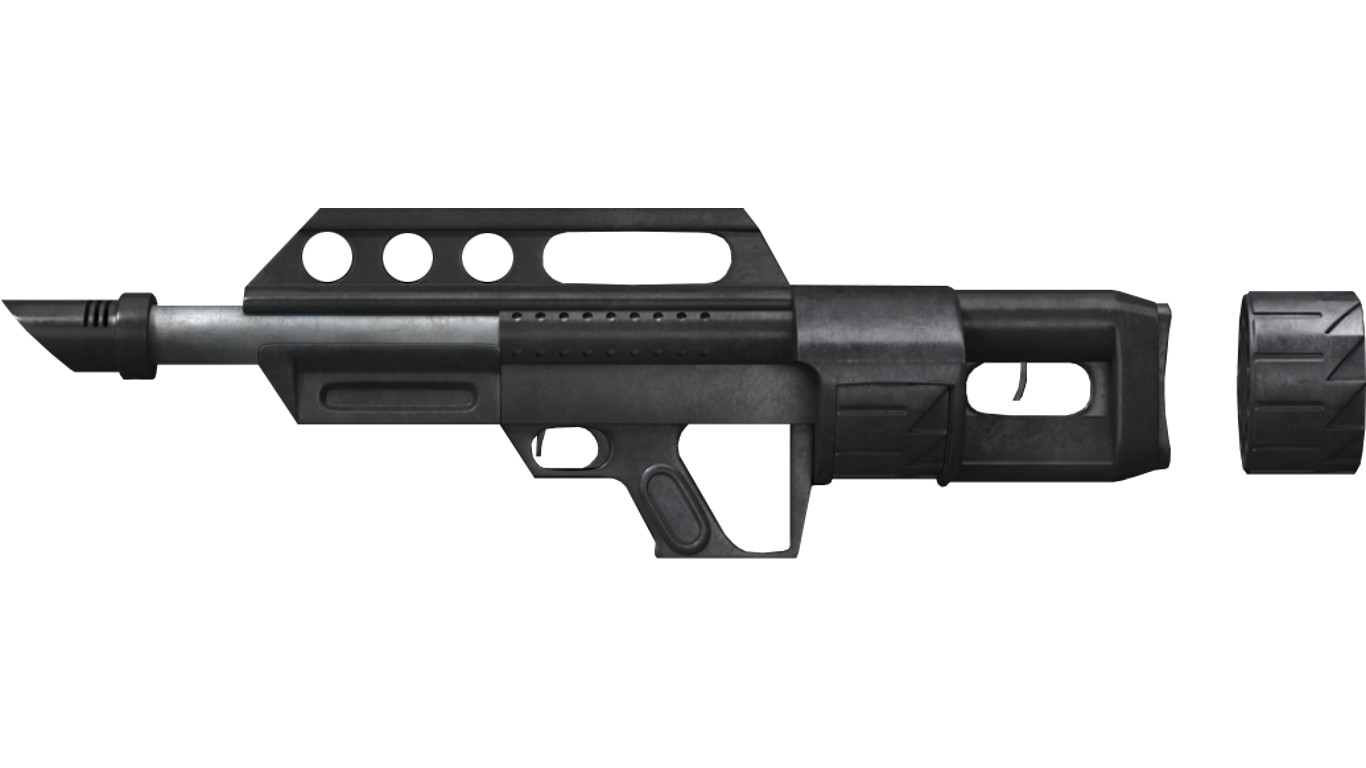
- Type: Automatic shotgun
- Year entered service: 1987
- Manufacturer: Pancor Corporation
- Caliber and feed: 12-gauge; 10-round cassette
MPS AA-12 (Sledgehammer)
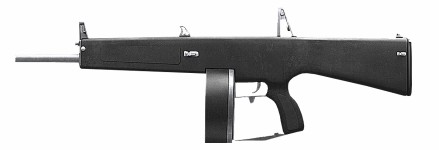
- Type: Assault combat shotgun
- Year entered service: 2005
- Manufacturer: Military Police Systems
- Caliber and feed: 12-gauge; 8-round detachable box; 20- or 32-round drum
Kel-Tec KSG
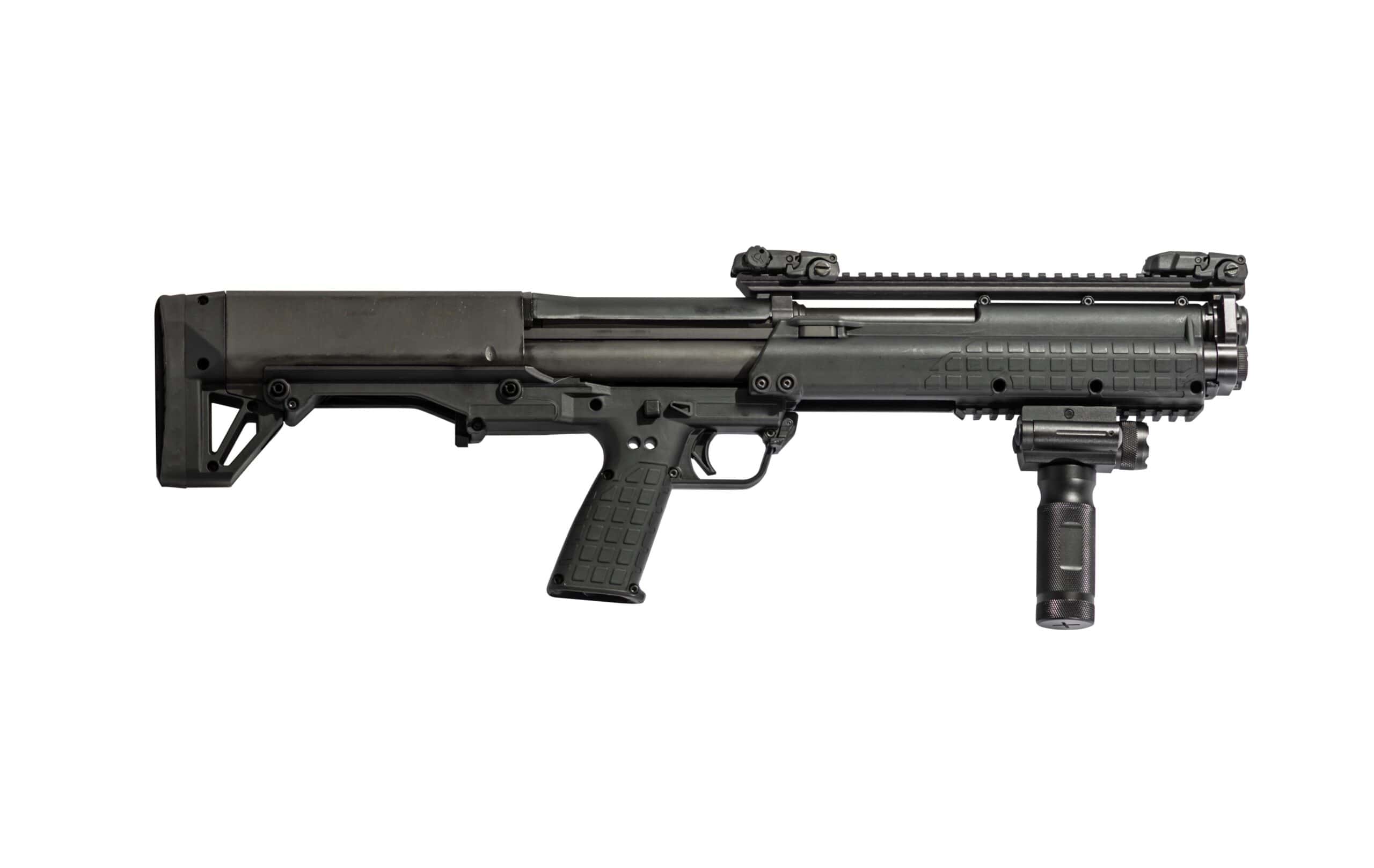
- Type: Pump-action bullpup shotgun
- Year entered service: 2011
- Manufacturer: Kel-Tec CNC Industries
- Caliber and feed: 12-gauge; Twin 6-shot internal tubular magazines
SRM Arms Model 1216

- Type: Semi-automatic shotgun
- Year entered service: 2016
- Manufacturer: SRM Arms
- Caliber and feed: 12-gauge; 8-,12-, 16-round tubular magazine
Mossberg M590 Shockwave
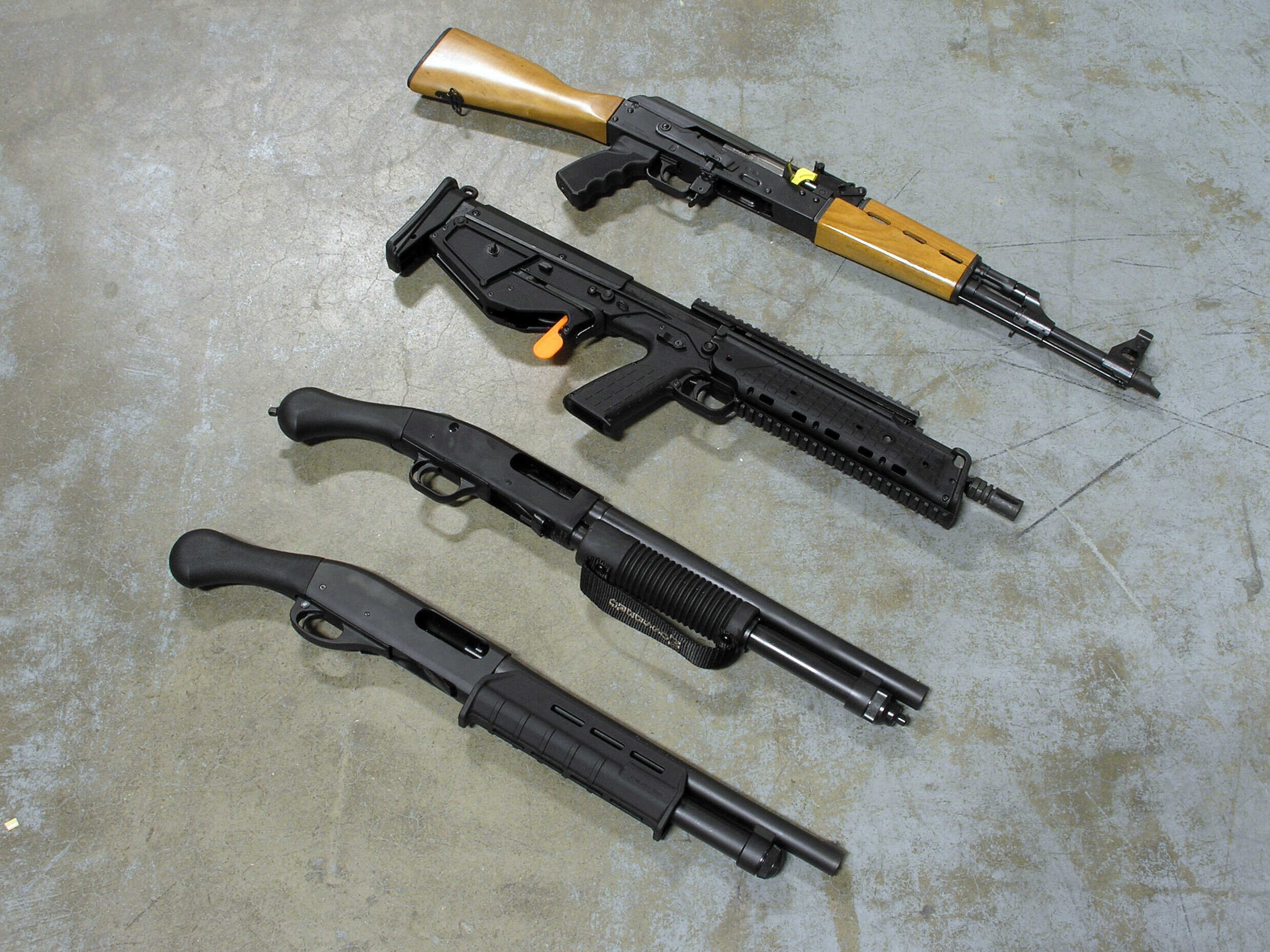
- Type: Magazine-fed pump-action shotgun
- Year entered service: 2018
- Manufacturer: Mossberg
- Caliber and feed: 12-gauge; 5-, 10-, 15-, or 20-round detachable box magazine
Remington V3 Tactical
- Type: Pump-action shotgun
- Year entered service: 2020
- Manufacturer: Remington Arms
- Caliber and feed: 12-gauge; 6-round tubular magazine
It’s Your Money, Your Future—Own It (sponsor)
Retirement can be daunting, but it doesn’t need to be.
Imagine having an expert in your corner to help you with your financial goals. Someone to help you determine if you’re ahead, behind, or right on track. With SmartAsset, that’s not just a dream—it’s reality. This free tool connects you with pre-screened financial advisors who work in your best interests. It’s quick, it’s easy, so take the leap today and start planning smarter!
Don’t waste another minute; get started right here and help your retirement dreams become a retirement reality.
Thank you for reading! Have some feedback for us?
Contact the 24/7 Wall St. editorial team.
